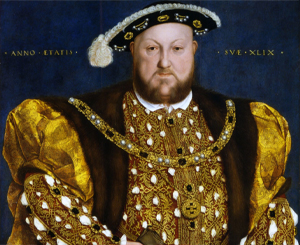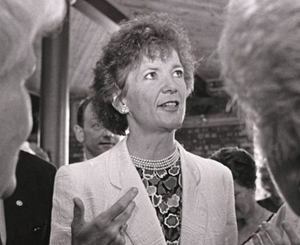ON THIS DAY
Published in Issue 1 (January/February 2023), News, News, Volume 31BY AODHÁN CREALEY
JANUARY
28/1547
King Henry VIII (55) died. Popularly remembered for his six marriages and his despotism (it’s estimated that he judicially murdered some 1,500 of his subjects, from humble servants to queens), it was Henry, of course, who introduced the Reformation to these islands. In 1534, when Pope Clement VII refused him an annulment of his marriage to Catherine of Aragon in order to marry Anne Boleyn, he broke with Rome and declared himself head of the church. Two years later, his ‘Act of Supremacy’—not a doctrinally focused initiative but rather a revolutionary change in ecclesiastical management—was passed by a very reluctant ‘Reformation Parliament’ in Dublin, and the clergy were exhorted by the appointed enforcer, Archbishop Browne, to ‘deface the said Bishop of Rome in all your books and have no trust in him, nor in his bulls or pardons’. More disconcerting still was a recommendation by a royal commission that religious houses be stripped of their property, so as ‘to protect the Irish people from the monks and nuns with their superstitious ceremonies, worship of idols and pestiferous doctrines’. Beginning with an Augustinian religious house in Graney, Co. Kildare, over 30 were suppressed in a single year, including the Augustinian house of All Hollows in the capital, which decades later would provide the site for Trinity College. As for the destruction of religious images, the most notorious was the burning in August 1538 of religious objects of considerable antiquity in Dublin’s Christ Church Place, including the treasured Bacall Íosa (Staff of Jesus), a crozier that had been housed in Christ Church Cathedral since the late twelfth century. The process of introducing radical Protestantism as we know it began during the reign of his successor, Edward VI.
01/1973
Ireland formally joined the European Economic Community (EEC), then often referred to as the Common Market, along with the United Kingdom and Denmark.
05/1973
Gerald Boland (87), co-founder of Fianna Fáil, who, as minister for justice (1939–48), was vilified by republicans for interning hundreds of IRA members, died.
06/1973
Dr Patrick Hillery was appointed Irish commissioner in the EEC, with the portfolio for social affairs.
11/1973
Ruairí Ó Brádaigh, president of Provisional Sinn Féin, was imprisoned for six months under the Offences Against the State Act for being a member of the IRA.
12/1923
Senator Oliver St John Gogarty escaped capture by republicans by swimming the Liffey. He presented two swans to the river in gratitude.
13/1923
The home of W.T. Cosgrave, president of the Executive Council, was burnt down.
20/1973
A car-bomb explosion in Sackville Place, Dublin, killed a 25-year-old bus conductor and injured thirteen others.
22/1973
Lyndon Baines Johnson (‘LBJ’) (64), 36th US president (1963–9), died at his ranch in Johnson City, Texas.
24/1973
Willie Clancy (51), acclaimed piper and folklorist, died.
27/1973
Under the terms of the Paris Accords, a ceasefire agreement was signed by all the contending parties in the Vietnam War, in which 55,337 Americans lost their lives.
29/1923
An anti-Treaty IRA campaign against political opponents, which included the destruction of the homes of senators, began with the burning down of the homes of the Earl of Mayo and Sir Horace Plunkett.
30/1933
Adolf Hitler was appointed German chancellor by President von Hindenburg.
31/1923
The ferry Princess Victoria, en route from Stranraer to Larne, capsized off County Down after a wave burst unsecured bulkhead doors in the stern; 128 lives were lost and 43 survived.
FEBRUARY
04/1993
President Mary Robinson made her first visit to Northern Ireland. Her two-day private visit provoked a diplomatic rift between London and Dublin. Prime Minister John Major and Northern Secretary Sir Patrick Mayhew told Taoiseach Albert Reynolds that they regarded it as ‘unhelpful’ to the efforts being made to persuade the two unionist parties to rejoin talks on the political future of Northern Ireland. Reynolds held firm, however, telling Major that he was not going to pressurise the president in any way. In the event, unionists found cause for outrage. At a reception for local community leaders in West Belfast, during which she was introduced to and briefly greeted, as she recalled, ‘every person in the room’, it emerged that amongst them was Sinn Féin’s Gerry Adams, at the time working secretly with John Hume to find a peace formula. ‘Disgraceful behaviour’, declared DUP deputy leader Peter Robinson, calling on the British government to submit a protest to Dublin. Meanwhile the violence continued. At 1.15pm that day an off-duty RUC officer entered Sinn Féin party offices on the nearby Falls Road, shot dead three civilians and later took his own life. It transpired that he had originally been assigned to protection duties for President Robinson. That night she met members of the Belfast Solicitors’ Association at a dinner in Queen’s University, and the following morning attended another function in Coalisland, Co. Tyrone. Returning home, she would have heard of yet another atrocity just a mile from Queen’s: in the early afternoon, two UVF gunmen entered a bookmaker’s shop and killed five Catholics, including a fifteen-year-old schoolboy. More than 200 more lives would be lost before the signing of the Good Friday/Belfast Agreement.
01/2008
Taoiseach Bertie Aherne and the North’s First Minister, Revd Ian Paisley, opened a resort and spa in Ballymena, Co. Antrim.
03/1973
In the North a wave of murders by the UDA/UFF, including those of three Catholic schoolboys in West Belfast, led to the internment of loyalists for the first time in 50 years.
05/2013
The McAleese report on the Magdalene laundries was published. It found ‘significant’ State collusion in the admission of thousands of ‘fallen women’ into the institutions, where they were abused and worked for nothing in conditions of slavery.
07/1873
Sheridan Le Fanu, writer of mysterious and spine-chilling tales, notably Uncle Silas (1864), died.
07/1993
The Maastricht Treaty, the foundation treaty of the European Union (EU), signed by the then twelve member states of the European Communities, came into effect.
09/1923
Brendan Behan/Breandán Ó Beacháin, playwright and author, notably of Borstal Boy (1958), born in Holles Street Hospital in Dublin’s inner city.
11/1923
Dr T.F. O’Higgins, father of Kevin O’Higgins, was shot dead at his home in Stradbally, Co. Laois.
16/1923
Archaeologist Howard Carter unsealed the burial chamber of Tutankhamun, pharaoh of the Eighteenth Dynasty of Egypt—the only royal Egyptian tomb to have been discovered intact and unravaged by looters.
19/1472
Nicholas Copernicus, the father of modern astronomy, was born into a family of wealthy merchants in Torun, Poland.
20/1973
A bus driver was killed and over a dozen others were injured when a bomb, most likely planted by the UVF, exploded without warning at Sackville Place, near O’Connell Street, Dublin.
22/1973
Elizabeth Bowen (83), novelist and short-story writer whose work included the best-seller The heat of the day (1949), died.
28/1973
The general election led to a Fine Gael/Labour coalition government with Liam Cosgrave as taoiseach and Brendan Corish as tánaiste.


















